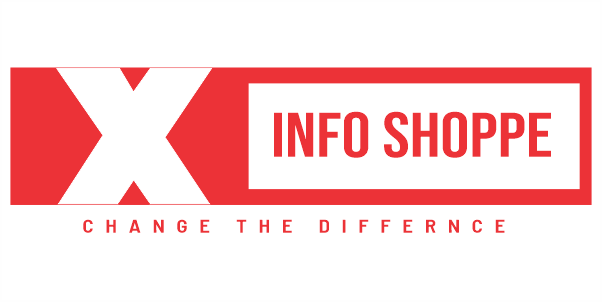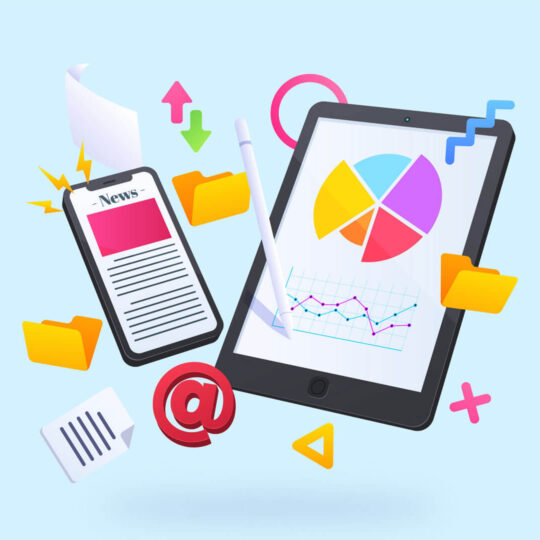- +1 (717) 710 6577
- info@digitalmartlab.com
Introduction to Email Marketing
Email marketing is a powerful digital marketing strategy that involves sending emails to prospects and customers. It helps businesses stay connected with their audience, drive traffic to their websites, and boost sales through personalized communication. With the right strategy, email marketing can deliver one of the highest returns on investment (ROI) among all marketing channels.

Pricing custom to you. Starting at $300
Key Components of Email Marketing
Email Design: Creating visually appealing and engaging email templates that
align with your brand identity and campaign goals.
Copywriting: Crafting compelling and persuasive email content that captures the
audience’s attention and encourages them to take action.
Automation: Implementing automated workflows to send emails based on user
behavior, preferences, and lifecycle stages.
Segmentation: Dividing your email list into segments based on demographics,
behavior, or engagement levels to tailor your messages more effectively.
Analytics and Reporting: Tracking key metrics such as open rates, clickthrough rates, and conversions to measure the success of your campaigns and
optimize future efforts.
Why Email Marketing is Important ?
High ROI: Email marketing consistently delivers a high ROI, making it one of the most cost-effective marketing strategies.
Personalization and Segmentation: It allows businesses to segment their audience and deliver personalized messages, which increases engagement and conversion rates.
Direct Communication: Email marketing provides a direct line of communication with your audience, helping to build and maintain relationships with customers.
Measurable Results: Email marketing tools offer detailed analytics and reporting, allowing businesses to track the success of their campaigns and make data-driven decisions.
Effective Email Marketing Strategies
Personalized Campaigns: Using data to personalize emails with the recipient’s name, interests, and past interactions to increase engagement.
A/B Testing: Testing different subject lines, content, and calls-to-action to determine what resonates best with your audience.
Responsive Design: Ensuring emails are mobile-friendly and look good on all devices, as a significant portion of emails are opened on mobile.
Clear CTAs: Including clear and compelling calls-to-action that guide recipients towards the desired action, such as making a purchase or signing up for a webinar.
Regular Audits: Conducting regular audits of your email list to remove inactive subscribers and ensure your list remains engaged and healthy.
Pricing for Email Marketing Services
The cost of email marketing services can vary widely based on the complexity of the campaigns and the range of services provided. General pricing ranges are:
- Basic Packages: $500 – $1,500 per month, which includes essential setup, basic campaign management, and initial audits.
- Advanced Packages: $2,000 – $5,000 per month, offering comprehensive services, including custom reporting, in-depth analysis, and ongoing optimization.
- Enterprise Packages: $5,000+ per month, tailored for large businesses with complex needs, providing extensive support, advanced tools, and dedicated account management.
Interested in working together?
Faq
Freequently Ask Questions
Email marketing involves sending emails to prospects and customers to build relationships, drive traffic to websites, and boost sales through personalized communication.
Email marketing is important because it offers:
- High ROI: Consistently delivers one of the highest returns on investment.
- Personalization: Allows for segmented and personalized communication.
- Direct Communication: Provides a direct line to your audience.
Measurable Results: Offers detailed analytics and reporting.
Key components include:
- Email Design: Creating visually appealing email templates.
- Copywriting: Crafting compelling content.
- Automation: Implementing automated workflows.
- Segmentation: Dividing the email list into targeted segments.
- Analytics and Reporting: Tracking and analyzing key metrics.
Email marketing improves customer engagement by delivering personalized and relevant content based on user behavior and preferences, leading to higher open and click-through rates.
Best practices include:
- Personalizing Content: Using recipient data to tailor emails.
- Segmenting Your Audience: Dividing your list for targeted messaging.
- Using Clear CTAs: Including compelling calls-to-action.
- Testing and Optimizing: Regularly conducting A/B tests.
- Ensuring Mobile Compatibility: Designing emails that look good on all devices.
The cost of email marketing services varies based on complexity and service range. General pricing ranges are:
- Basic Packages: $500 – $1,500 per month.
- Advanced Packages: $2,000 – $5,000 per month.
- Enterprise Packages: $5,000+ per month.
When choosing an email marketing agency, consider:
- Experience and Expertise: Look for a proven track record in your industry.
- Service Range: Ensure they offer comprehensive services that meet your needs.
- Transparency and Communication: Choose an agency with clear reporting and open communication.
- Client Testimonials and Case Studies: Check reviews and case studies to gauge their effectiveness.
Email marketing integrates with other digital marketing efforts by providing insights that can improve overall strategies. For instance:
- SEO: Helps track keyword performance and site traffic.
- Content Marketing: Evaluates the effectiveness of different content types.
- Email Marketing: Monitors the performance of email campaigns and their impact on website traffic.
- Social Media Marketing: Assesses how social media drives traffic and engagement on your site.
Yes, small businesses can significantly benefit from email marketing by:
- Saving Time: Automating repetitive tasks allows small teams to focus on strategic initiatives.
- Improving Customer Relationships: Personalized and timely communications enhance customer satisfaction and loyalty.
- Increasing Efficiency: Streamlining workflows and processes to make the most of limited resources.
- Gaining Insights: Leveraging data and analytics to make informed decisions and optimize marketing efforts.
To ensure success, follow these steps:
- Define Clear Goals: Establish specific, measurable objectives for your email campaigns.
- Choose the Right Tools: Select software that aligns with your business needs and integrates well with your existing systems.
- Regularly Monitor and Adjust: Continuously track performance metrics and make data-driven adjustments to optimize your campaigns.
Invest in Training: Ensure your team is well-trained in using email marketing tools effectively.
Common tools include:
● Mailchimp
● HubSpot
● Constant Contact
● SendinBlue
● ActiveCampaign
Email marketing helps with lead generation by:
● Nurturing Leads: Sending targeted emails to move prospects through the sales
funnel.
● Offering Valuable Content: Providing resources, newsletters, and offers that
encourage recipients to take action.
● Automating Follow-ups: Ensuring timely and relevant follow-ups to keep leads
engaged.
Success can be measured using various metrics, including:
● Open Rates: The percentage of recipients who open your emails.
● Click-Through Rates (CTR): The percentage of recipients who click on links in
your emails.
● Conversion Rates: The percentage of recipients who complete a desired action.
● Bounce Rates: The percentage of emails that could not be delivered.
● Unsubscribe Rates: The percentage of recipients who opt out of your email list.
Common challenges include:
● List Management: Maintaining a clean and engaged email list.
● Content Creation: Producing enough quality content to keep subscribers
interested.
● Deliverability: Ensuring emails reach the inbox and don’t get caught in spam
filters.
● Personalization: Collecting and using data effectively to personalize messages.
Our Clients

















